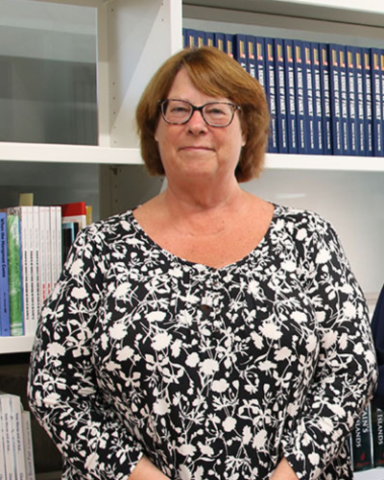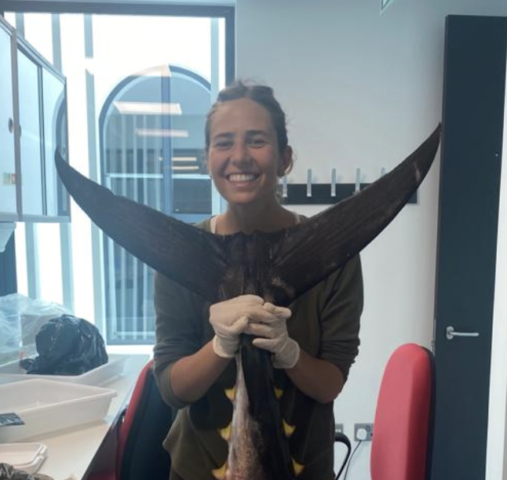Research That Benefits Gibraltar 2024 Conference Day one speakers
The RTBG conference serves as a dynamic platform for the University of Gibraltar faculty, Associate Researchers, and PhD students to showcase their latest research endeavours.
Beyond presentations, the conference aims to cultivate interdisciplinary collaboration, facilitate knowledge exchange, and foster engagement with the local community.
The goal is to spotlight the remarkable research contributions emerging from the university, with tangible benefits not only for Gibraltar but also extending beyond its borders.
For more detailed information, please visit: https://www.unigib.edu.gi/rtbg-2024-conference/
Angelo L. Cerisola - Navigating the Boundaries: Sustaining Professionalism in Small Community Settings
Angelo L. Cerisola is an experienced Family Court Advisor, safeguarding social work professional, senior manager, and educator, and currently serves as the Director of Services, Safety, and Standards at the Care Agency.
In this capacity, he oversees governance, quality assurance, and learning initiatives, ensuring the delivery of high-quality social care standards.
Mr Cerisola’s extensive leadership role extends to academia, where he imparts knowledge as a visiting lecturer at the University of Gibraltar and UK universities.
Committed to continuous learning, he is pursuing a PhD at the University of Gibraltar, underlining his dedication to staying at the forefront of social work advancements.
As a member of the Institute of Leadership and Management, he brings a nuanced perspective to his multifaceted career, actively participating in statutory committees that shape health and social care policies.
His comprehensive contributions reflect a passion for elevating standards in the field and making enduring impacts on the well-being of individuals.
In his talk, Mr Cerisola will conduct a thematic analysis of findings to illuminate crucial insights shaping health and social care professional ethics and policy in the domain of childcare safeguarding.
This research delves into the intricacies of maintaining professionalism within small communities, focusing on the welfare of children.
Through a rigorous examination of literature, a comprehensive methodology, and insightful case studies, he uncovers key themes that hold significant implications for ethical considerations and policy formulation.
The resulting analysis aims to inform and guide health and social care professionals, offering a foundation for ethical decision-making and the development of policies that resonate with the unique challenges of safeguarding children in close-knit environments.

Caroline Moss-Gibbons - The Doctoral Viva as Intellectual Examination Dialogue: An International Study
This presentation will showcase the preliminary findings of an international research project in which the University of Gibraltar is collaborating with partners in the UK and New Zealand.
Titled ‘The Doctoral Viva as Intellectual Examination Dialogue: An International Study’, this research aims to explore the policies, practices, regulations, dimensions, varieties, challenges, and experiences of the doctoral viva voce (oral examination) within the context of the various higher education systems of the partner institutions.
All project partners have interviewed participants involved in the three main roles of a PhD viva: Examiners, Chairs and, of course, Candidates.
Each participant interviewed has brought their own unique experience of the many and varied types of PhD vivas conducted at their home institutions.
The insights gained will help the university to design and deliver the most positive, effective and rewarding experience for its PhD candidates as well as feed into wider international academic frameworks and processes.

SAMSUNG DIGITAL CAMERA
Dr Jennifer Ballantine Perera - The Overlaid Past: The Politics of Space and Memory in Gibraltar’s ‘Doubling’ Street Naming Principle.
“In 2022, I gave a lecture on a piece of research relating to the traditional street naming principle at Gibraltar, with this published as a chapter in a book, Place Naming, Identities and Geography, (Springer 2023).”
“I became interested in the subject following a Gibraltar government-led initiative to revive traditional street names, with plaques bearing these placed in public spaces alongside official street names.”
“Whilst an important initiative aimed at cultural recovery, I was drawn towards the visual ‘doubling’ of street names, especially as traditional street names had never before appeared in public spaces, for they existed only in the imagination of Gibraltarians.”
“The revival of these names has invariable served to overlay the past onto the present-day, but not quite, as this is informed by an incomplete process that has failed to bring forward the significance of how these traditional street names were created and functioned.”
“Memory is key here, not only as a means to recall the past, but in also understanding how traditional street names were transferred and used as a navigational tool.”
“Although no longer in daily use as they were during the 18th Century through to the latter part of the 20th , at which point a decline in usage is noted (Ellicott c.1975), these names have proved to be very resilient.”
“Of note is the fact that they did not collapse after the implementation of official street name plaques in the 1860s, as could have easily been the case given that official names were driven by a colonially informed and enforced naming principle.”
“Now this really piqued my curiosity, as surviving against the odds is a very seductive motif, one which took me down a historical path to uncover how these names were imaginatively created by Gibraltarians.”
“Their linguistic and culturally codified naming principle is the key to how these names functioned, with this codification leading not only to their resilience, but also to their primacy over the official mapping of the streetscape.”
“Such was the case that these names inadvertently became a disruptive force, as whilst Gibraltarians could move with ease throughout the urban centre, the services-based settler community could not.”
“We are ultimately dealing with the story of how Gibraltarians walked through the streets of Gibraltar with the use of their memory driven GPS, whereas those without this local knowledge would be lost.”

Samantha Slisarenko - Tuna in flux: Assessing climate impacts on key fishery species.
From Canada to Gibraltar, Samantha Slisarenko is a PhD researcher specialising in fisheries and oceanographic processes.
Her work involves lecturing in oceanography and collaborating with university researchers and local anglers.
This synergy of academic and practical perspectives informs her approach to understanding and managing marine ecosystems.
In this presentation, the intricate relationship between climatic variability and oceanographic processes is examined, with a specific focus on their effects on tuna species.
The talk will explore how changes in climate lead to significant alterations in ocean environments, subsequently impacting the behaviour, migration, and stock dynamics of tuna.
The importance of a broad understanding of these oceanographic influences on tuna will be emphasised, particularly in the context of developing effective and equitable conservation strategies.
Special attention will be given to the challenges faced by fishing communities in regions experiencing significant environmental changes.
The overall goal of this talk is to provide a perspective on how climatic variability intersects with oceanography and the life cycles of key fishery species, underscoring the critical role of adaptive and informed management in marine conservation.









